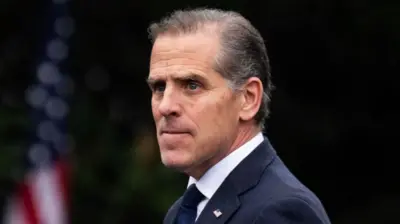We've updated our Privacy and Cookies Policy
We've made some important changes to our Privacy and Cookies Policy and we want you to know what this means for you and your data.
George Mitchell resigns as US envoy to Middle East
Top Stories
US envoy to the Middle East George Mitchell is resigning after two years in the role, the White House says.
Mr Mitchell, a former senator and broker of the peace deal in Northern Ireland, is stepping down for personal reasons, the Associated Press reported.
He has shuttled between the Israelis and Palestinians trying to bring the two sides together for peace talks.
US President Barack Obama said Mr Mitchell had "contributed immeasurably" to the peace process.
In a letter to the president announcing his resignation, Mr Mitchell said he had taken the job with the expectation of serving in the position for two years.
Top Stories
He also said in the letter: "I strongly support your vision of comprehensive peace in the Middle East and thank you for giving me the opportunity to be part of your administration."
Mr Obama said in a statement: "As he returns to his family, George leaves behind a proud legacy of dedicated public service and the country owes him a debt of gratitude for his extraordinary commitment."
He praised Mr Mitchell's "deep commitment to resolving conflict and advancing democracy".
US Secretary of State Hillary Clinton said: "As well as anyone in his generation, George understands the slow, hard work of diplomacy, the art of compromise and the indispensable role of American leadership in the world."
She appointed Deputy Middle East Envoy David Hale to serve as acting envoy. Mr Mitchell's resignation will be effective from 20 May.
September talks
Mr Mitchell, 77, was appointed Middle East envoy by President Barack Obama in early 2009.
Top Stories
He led nearly two years of proximity talks, in which he functioned as an intermediary between Israeli and Palestinian negotiators, shuttling back and forth between the two sides.
His efforts culminated in September in a short round of direct, White House-brokered talks between Israeli Prime Minister Benjamin Netanyahu and Palestinian President Mahmoud Abbas.
But the negotiations quickly fell apart after Israel declined to extend a moratorium on construction of settlements in the occupied West Bank.
Mr Mitchell was unable to push the two sides to restart the talks, and his travel to the region slowed significantly after December.
Meanwhile, Mr Obama is due to make a speech next week on US policy in the Middle East and his administration's views on the recent sweep of pro-democracy uprisings there.
That is likely to come ahead of a visit by Mr Netanyahu to Washington at the end of week to press the US to boycott any Palestinian government that includes Hamas, which governs Gaza.
Hamas and Fatah, the secularist movement that runs the Palestinian Authority government in parts of the West Bank, last week signed a reconciliation agreement paving the way for a joint interim government and elections next year.
Baseball inquiry
Mr Mitchell, a former Democratic senator from Maine, was nominated for the Nobel Peace Prize for his role with President Bill Clinton in brokering the 1998 Good Friday peace accords in Northern Ireland.
The talks he chaired led to a ceasefire by the IRA and set the scene for a reconciliation between the two sides that would have once been unimaginable.
In 2000, Mr Clinton appointed him to lead a commission on the Israeli-Palestinian conflict. In his final report, he called for an end to Israeli settlement activity and for Palestinians to prevent militant attacks and punish those responsible.
Later, he investigated steroid doping in professional baseball.
"Conflicts are created, conducted and sustained by human beings; they can be ended by human beings," he said in 2009, when Mr Obama appointed him Middle East peace envoy.
Top Stories
More to explore
Most read
Content is not available








